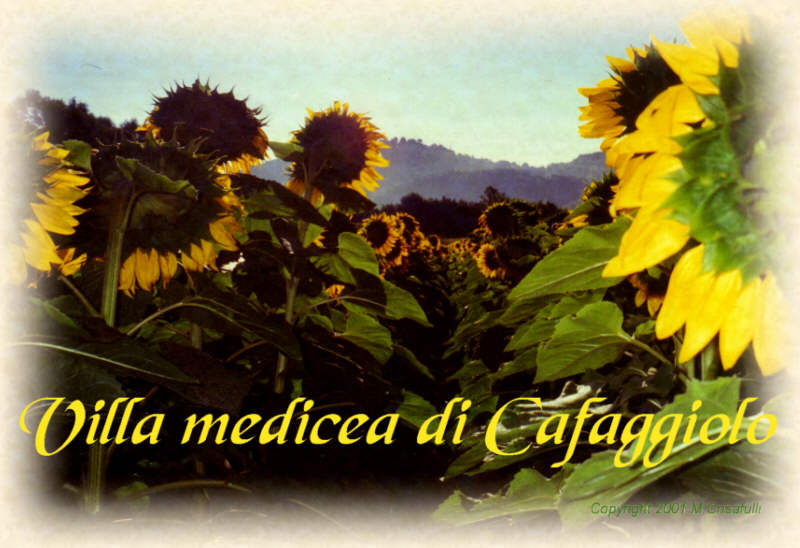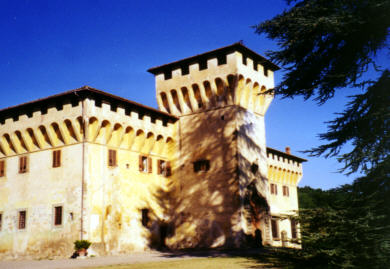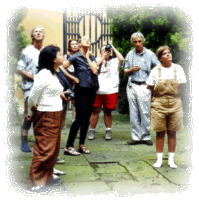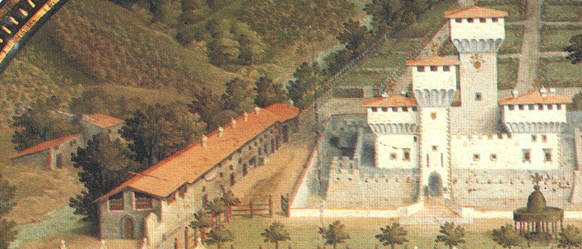

| In | the summer of 2000 Karen and I returned to Italy for more archaeology, sun, and good food, this time to the little Tuscan village of San Piero a Sieve in the Apennines foothills north of Florence. Our excavation at the Medici villa of Cafaggiolo, amidst the sunflower fields a short distance from the town, involved a search for the workshop where fine maiolica ceramics were made during the Renaissance. |
 |
The villa, built for the Medici in the 1400s and pictured at left as it appears today, is owned by a small group who rent it for weddings and other festive  occasions and conduct tours one or two days a week. We took our
tour
during a break from excavating. The picture at right shows us in
the courtyard. One of the owners, Signor Geron (in the blue shirt,
second from the
right), led the tour.
occasions and conduct tours one or two days a week. We took our
tour
during a break from excavating. The picture at right shows us in
the courtyard. One of the owners, Signor Geron (in the blue shirt,
second from the
right), led the tour.
|
| The illustration below, painted by Giusto Utens in 1599, shows the villa and outbuildings as they appeared during the Renaissance and the stream. Today many of the villa outbuildings are rented as apartments. | |
|
This is not very different from Renaissance times. The famous ceramics made here were not produced by the Medici, but by craftsmen who rented space from them. Our excavations were in and around the "Manica Lunga", the long, narrow structure to left of the villa. It was this building that housed the ceramics factory. |
 |
Several project research objectives are
listed below:
|
The most important element of the project was the ceramics. Read a little about them here. |
|
|
The excavations at Cafaggiolo were extensive and interesting. Read more about them here.
|
 |
Visit Excavation Director Tommaso Zoppi’s
excellent Italian site for a detailed description of the project goals and the
1999 excavation results. The English translation is a little uneven, but
the overall content of the Italian and English pages is informative and interesting. (The page will open in a new window.) |
| You can do this! | This Earthwatch project is complete. But use this link to the Earthwatch page for similar projects. |
This page and its contents
© Copyright 2000, 2001 Michael & Karen Crisafulli. All rights reserved.
Updated 3 Mar 01